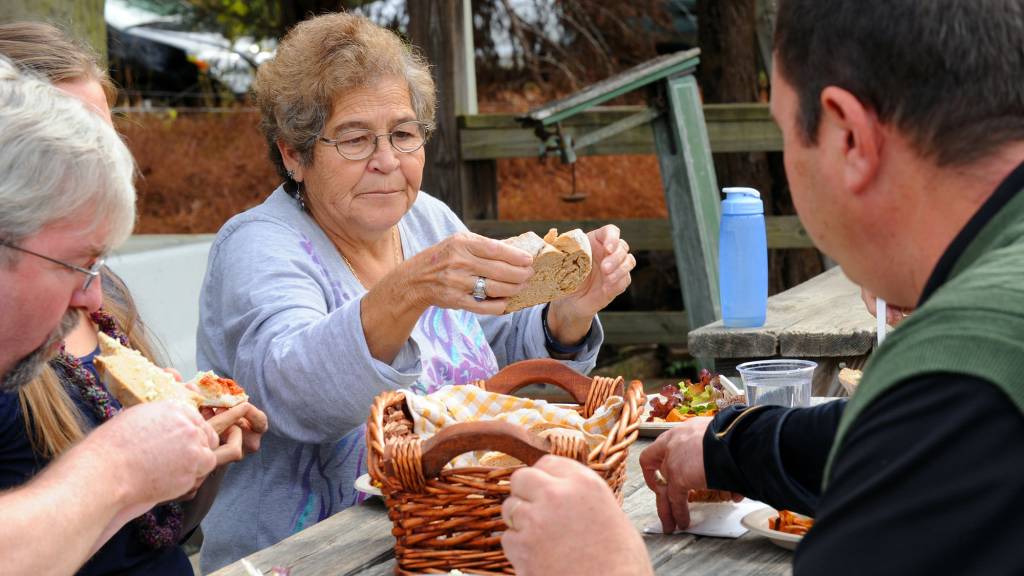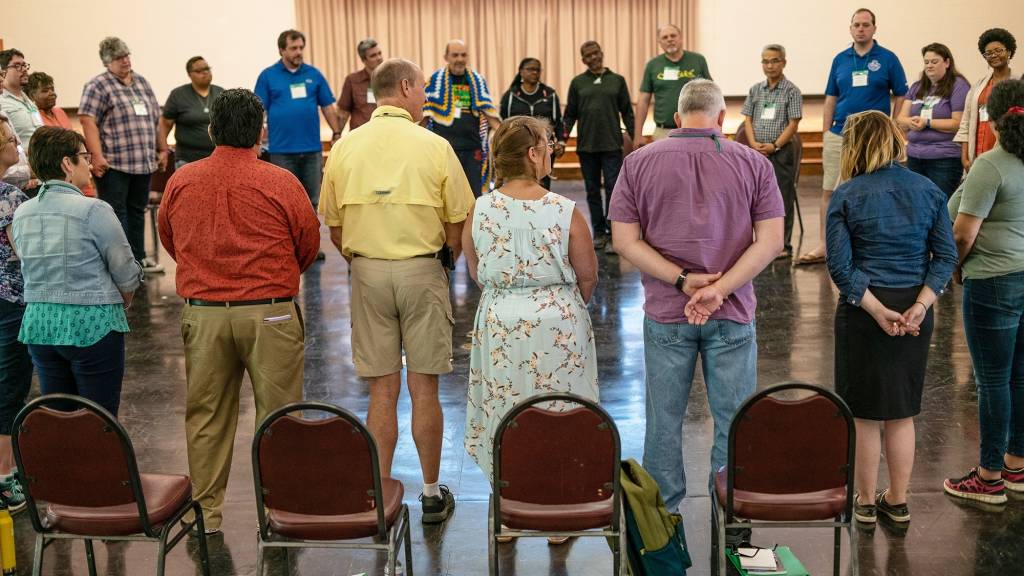Challenge
It takes real skill, community coordination, and resources to establish service ministries that bring vibrance to congregations and their neighborhoods.
It takes real skill, community coordination, and resources to establish service ministries that bring vibrance to congregations and their neighborhoods.
The Endowment supports a statewide network of nonprofit organizations and programs with expertise in both building church capacity and in statewide and rural community systems to create impact at the local level.
Each year several hundred rural churches across North Carolina participate in capacity building activities to reinvigorate their connections with community through transformative ministries.
Collaboration is key — within each congregation, with technical assistance partners, and with partners in community.
A healthy church is meaningfully connected to the community it calls home. In many rural areas, neighbors are struggling to get adequate food and clothing, stable housing and employment, and care for health and wellbeing, among other urgent issues. Effectively engaged in community, a church becomes more attentive and responsive to these problems and their root causes — and part of a path forward toward a more vibrant community for all.
Many rural churches need professional assistance to do this well. Churches are already busy with day-to-day ministries and operations. What’s more, every community has unique needs, opportunities, and contexts that merit careful consideration. And it takes real skill, coordination, and resources to establish ministries that enhance a congregation’s ability to effectively serve their communities.

To help rural churches engage their communities effectively, The Duke Endowment supports a statewide network of nonprofit technical assistance providers with expertise in helping faith communities act on issues of health, hunger, economics, environment, equity, and more.
Each of these technical assistance providers is on a mission to walk with congregations as they explore specific concerns and aspirations in their communities, engage with other public and private partners, develop their plans to reach out, and measure the difference they are making.
With Endowment support, this network offers:
Today a growing number of North Carolina’s rural churches are supporting a spectrum of vital community programs in food security, suicide prevention, affordable housing, literacy building and more. The Duke Endowment is supporting their journeys through a network of experienced, trusted technical experts.
With seed money and capacity building available through the Resourceful Communities program of The Conservation Fund, 35 churches are supporting innovative food-related projects to nourish people and local economies.
Partners in Health and Wholeness, an initiative of the NC Council of Churches, is connecting rural churches with governmental entities in health and human services. As a result, 33 churches were re-certified as having community health workers able to respond to chronic disease and injury.
The Institute for Emerging Issues of NC State University is helping dozens of rural congregations learn to interpret and apply data to guide their community engagement efforts. To date, 38 participating churches have developed data-driven action plans and many more are in the process.
Connect to church calling. It’s important to center this work in the mission of the church, and what makes it distinct from other types of organizations providing social services. This often requires clergy and laity to work together on a mutual understanding of their mission and how God is calling them — before moving into the community.
Build on church assets. Engagement should happen at the intersection of church strengths and community needs. Church assets may include buildings, land, the expertise of laity, social capital, and other gifts. With professional coaching from technical assistance providers, congregations often realize they have all the resources they need to conduct a vibrant, high-impact ministry.
See the strengths in others. It can be a very new thing for church clergy and laity to work with outside technical assistance providers. Take time to get to know the value each partner can bring. For technical assistance providers, rural churches have the potential to touch lives in communities across the state. For churches, technical assistance providers offer tools and support for effective community engagement.
Look through a lens of racial equity. Recognizing the diversity, history, and lived realities of communities is vital to engagement. For churches unsure where to begin in this regard, technical assistance providers can help them ask productive questions and explore the equity implications of choices they may make.
Share the vision and the work. One person, whether clergy or laity, can’t do it all. Ideas that are viewed as one person’s largely fall to that person to carry out — and fade away when that person grows tired or loses interest. Capacity building and community engagement require buy-in, support and leadership from lay members of the congregation, ideally a team. Thriving programs and churches also spend time developing leadership. They share responsibilities and look for opportunities to raise up the next generation of leaders.
Cultivate relationships and keep talking. True collaboration across churches, their technical assistants, and community takes trust, clarity around roles and expectations, and genuine interest in one another. No one group has all the answers. Build and enter new networks, ask questions, and listen well. Stay connected and share stories about what works and what doesn’t along the way.


January 4, 2018 | Kristen R. Richardson-Frick